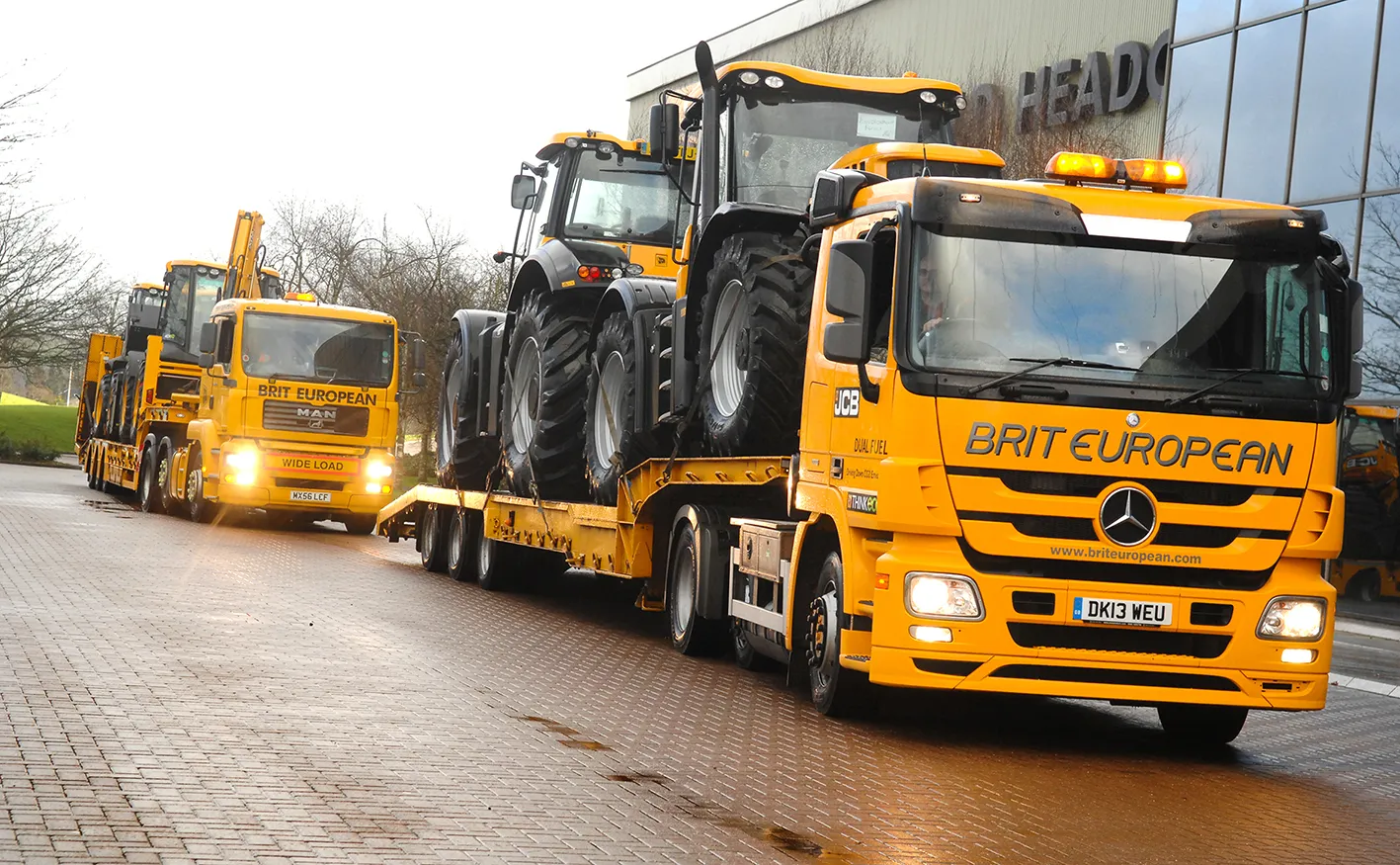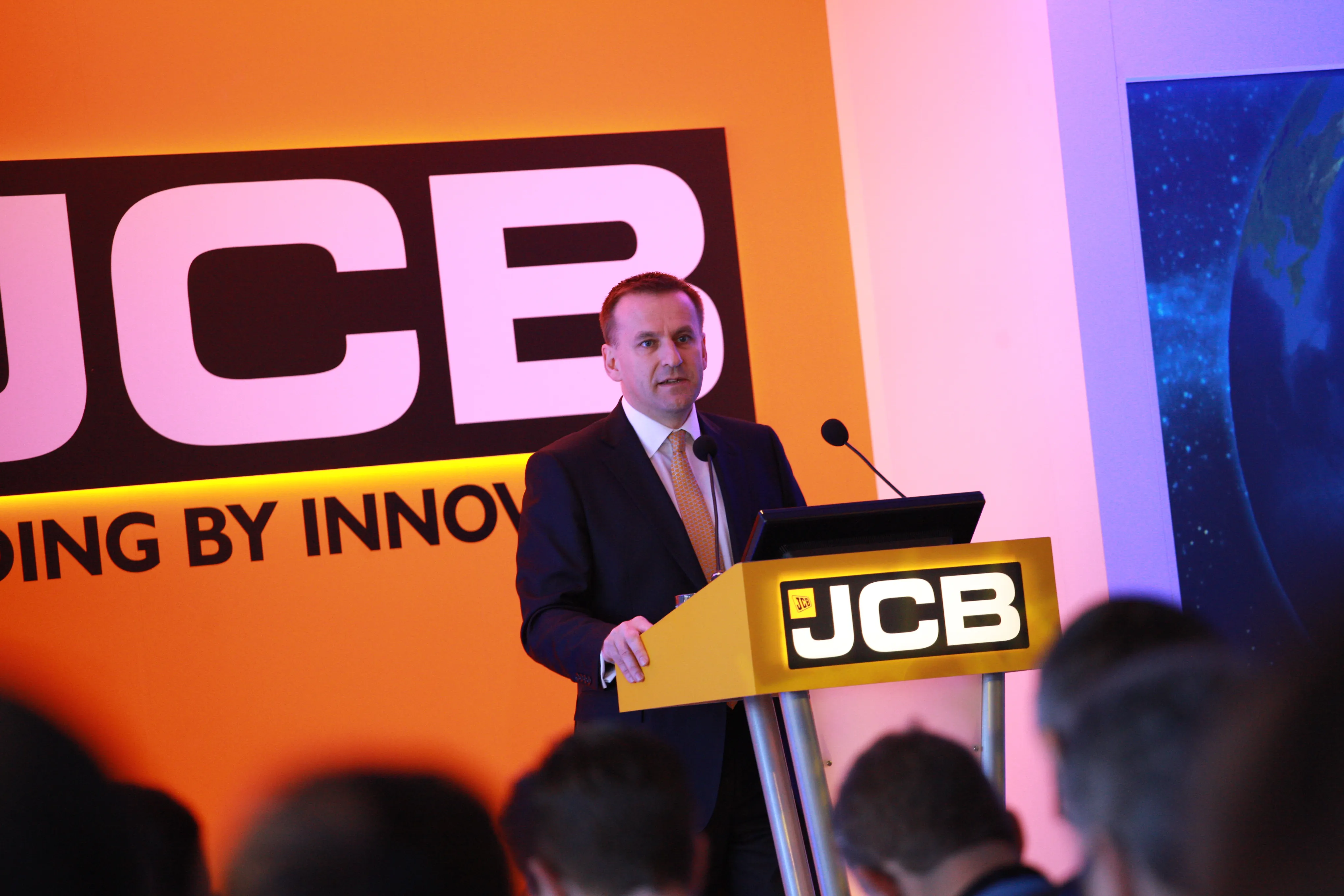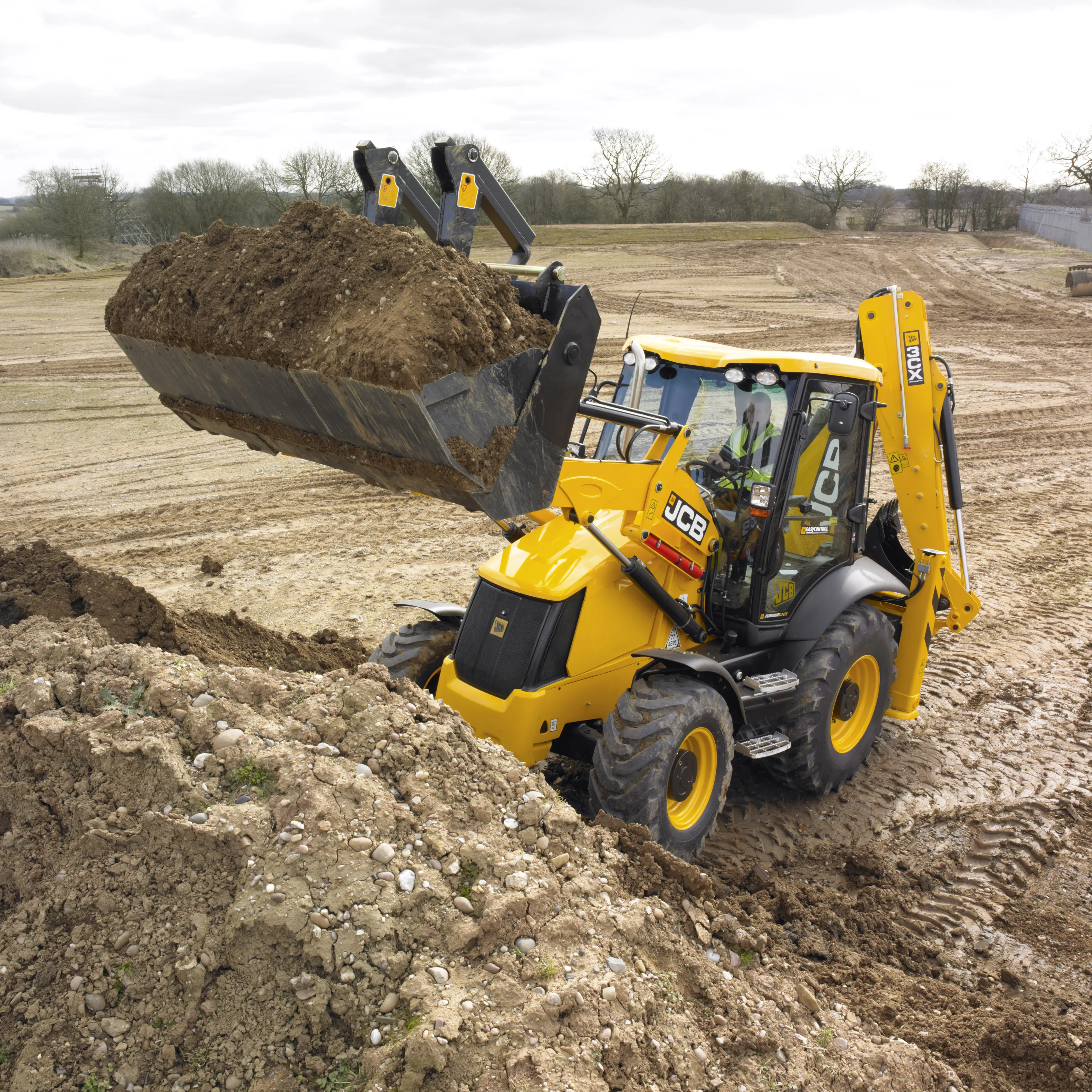JCB is reacting to the British flood disaster by deploying a €908,760 (£750,000) fleet of machines complete with operators to help stricken families.
The company today announced that four of its high-speed, high ground clearance Fastrac tractors equipped with trailers and two of its iconic backhoe loaders were being despatched to the worst affected areas. The Fastrac tractors will be deployed in areas where people and livestock need moving from advancing flood waters. The JCB backhoe, with its ability t
February 13, 2014
Read time: 2 mins

The company today announced that four of its high-speed, high ground clearance Fastrac tractors equipped with trailers and two of its iconic backhoe loaders were being despatched to the worst affected areas. The Fastrac tractors will be deployed in areas where people and livestock need moving from advancing flood waters. The JCB backhoe, with its ability to both load and dig, will play vital role in shoring up flood defences and eventually in clearing debris left by the flood waters.
JCB has already supplied a 541-70 Loadall telescopic handler to support farmers who have been left without feed and bedding for livestock evacuated to dry land from flood hit areas. The machine is being used to load donated forage on to trucks at Sedgemore Cattle Auction in Somerset, southwest England where the distribution is being co-ordinated.
Lord Bamford, JCB’s chairman, said, “The scale of the floods and the anguish being caused is devastating for all concerned. As Britain’s biggest manufacturer of construction equipment we are in a position to provide machinery quickly to help families and farmers who are suffering so dreadfully through the floods. It’s my hope that the JCB machines we’re providing will help alleviate that suffering.”
The machines are being shipped from JCB’s World Headquarters in Rocester, Staffordshire, central England today. They will be operated by drivers provided by the Construction Industry Training Board (CITB). JCB machines are already at the forefront of efforts to assist in the flood zones thanks to the company’s plant hire customers who are deploying their fleets to help.
JCB has a long history of helping countries affected by major natural disasters and recently provided €367,207 worth of machines and generators to the Philippines when Typhoon Haiyan struck.







